Conflict resolution: be unpredictable
The Indian defence minister spoke – unexpectedly – of a doctrinal change in stance.
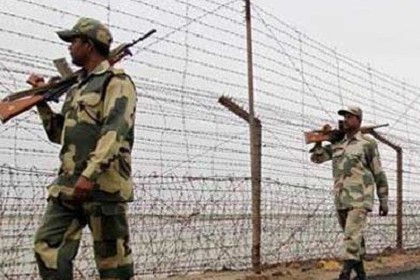 Courtesy: India.com
Courtesy: India.com
The Indian defence minister spoke – unexpectedly – of a doctrinal change in stance.
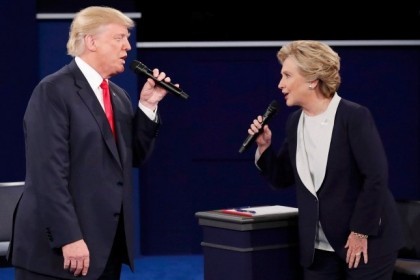 Courtesy: Reuters
Courtesy: Reuters
This excerpt was transcribed from The Gateway House Podcast episode, 'U.S. Elections: Trump’s down but not out' which is part of the special miniseries on the U.S. election and its foreign policy implications. In the episode, Ambassador Neelam Deo discussed the larger foreign policy implications mentioned by the presidential candidates at the second Presidential debate on Sunday night
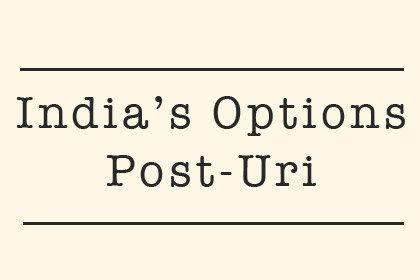 Courtesy: Gateway House
Courtesy: Gateway House
In the aftermath of the terrorist attack on the Indian Army brigade headquarters in the town of Uri, Jammu and Kashmir, Gateway House has compiled potential policy options for India.
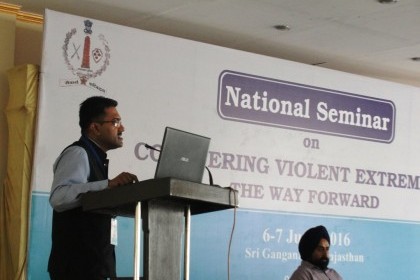 Courtesy: Sameer Patil
Courtesy: Sameer Patil
A recent seminar on ‘Countering Violent Extremism’ (CVE) offered a platform for law enforcement agencies to understand technological, social media and other propaganda strategies used by cross-border terrorist groups. The seminar’s location in Sri Ganganagar, the northern-most town of Rajasthan, served as a gentle reminder of challenges specific to security agencies on the India-Pakistan border.

Sameer Patil, Fellow, National Security, Ethnic Conflict and Terrorism, Gateway House, comments on the implications of David Headley's deposition.
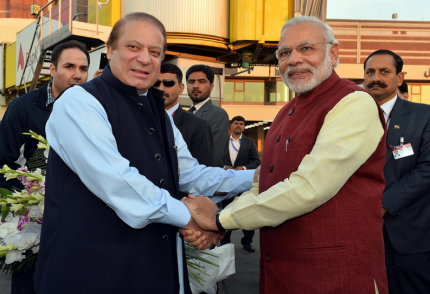 Courtesy: Flickr/ MEAPhotogallery
Courtesy: Flickr/ MEAPhotogallery
The Pathankot attack reflects a new template of terrorism and is a reminder that India needs a well-coordinated approach to security emergencies. This is particularly necessary as the country has embarked on a bold foreign policy path, daring to tread where we have not gone before, intensifying existing and new engagements and trying to functionalize dysfunctional bilaterals like Pakistan
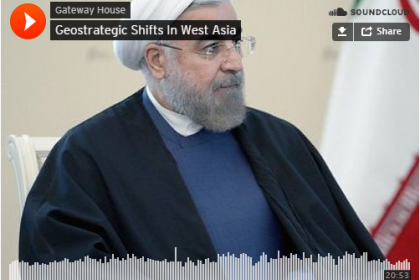 Courtesy:
Courtesy:
As Iran begins to re-integrate with the global economy, the politics in West Asia are bound to be impacted. Will Iran be the new Turkey? Is Turkey going down the path of Pakistan? M.D. Nalapat, director of the School of Geopolitics at Manipal University and Manjeet Kripalani, executive director, Gateway House join our national security fellow, Sameer Patil, to discuss these questions, and more.
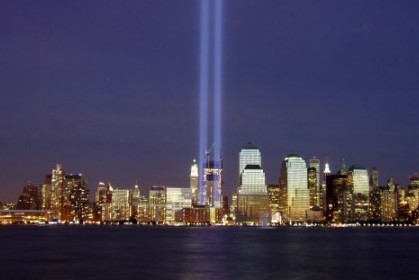 Courtesy: Wikipedia
Courtesy: Wikipedia
Whatever else may be beyond our control, we are all free to choose which 9/11 moves us most deeply.
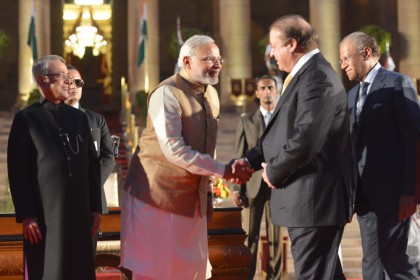 Courtesy: Wikipedia
Courtesy: Wikipedia
The cancellation of the August 23-24 meeting of the national security advisors of India and Pakistan follows a pattern of unrealistic expectations raised and then quickly dashed. This is compounded by Pakistan’s long history of denial on numerous issues. It may be time for both countries to abjure high-profile diplomacy and turn to small confidence-building measures.
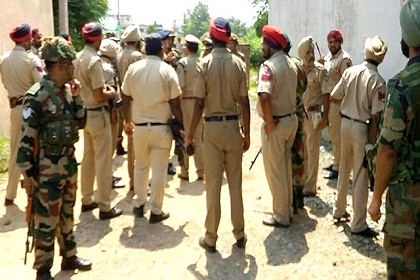 Courtesy: The Indian Express
Courtesy: The Indian Express
The attack in Gurdaspur this week was different from any previous Pakistan-sponsored terrorist hit. India must be wary of the new and improved strikes coming from across the border, and must also plan a robust, long-term policy response